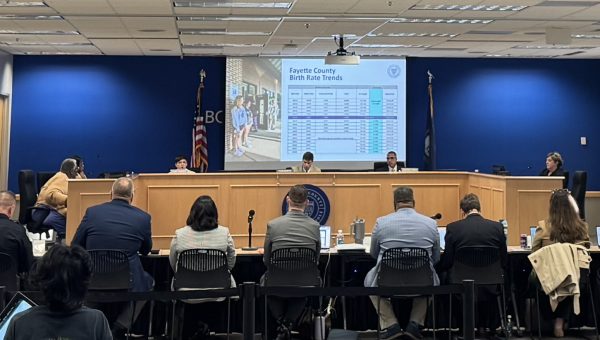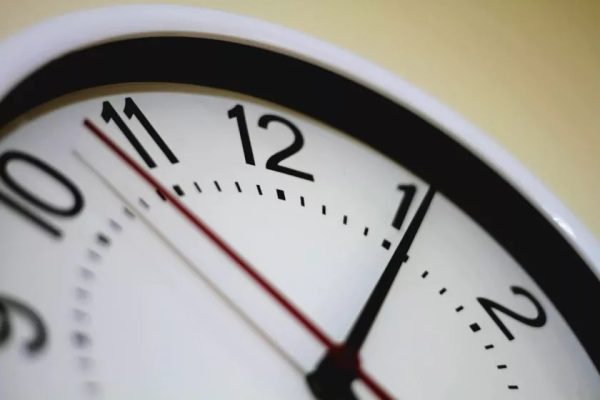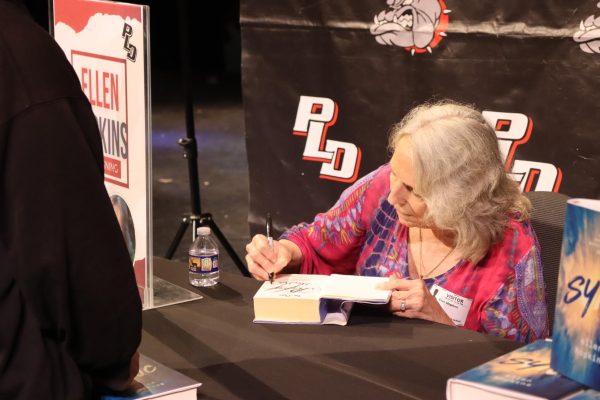Go Out and Vote 2016
Op-Ed
The 2016 Presidential Race has been one of the most extreme and memorable races in recent history. Despite how historic this election is shaping up to be, only 29% of our population wants to be part of history this year (Pew Research Center RSS). This is a longtime trend now, as in recent elections, at all levels of government, voter turnout only exceeds 50% in the presidential elections and is very low even in cities where voting is convenient. The problem of American voter apathy is getting out of hand, even as contempt with elected officials is reaching historic highs. For the sake of this country and its future, the trend of “my vote won’t matter anyway” must change.
We have all seen the YouTube videos and Facebook articles about the upcoming 2016 election. At this point, it seems like everyone has an opinion on the election and rightly so—this election seems to be a vital one that will have profound impacts on the future of America. Yet despite this importance and despite this seemed enthusiasm, primary voter turnout is just as low as it was in 2012. In Kentucky, for example, there was less than 20% voter turnout during the May 17th primary election.
Voter turnout ends up being a game of priorities. We all have opinions. We all want improvements in our lives. We all want the benefits that voting is supposed to provide us, however, it appears that the benefits have become less apparent, with more and more people losing faith in the electoral process.
This decrease in political efficacy can partially be blamed on the twoparty system that currently exists in the United States. The US political landscape has long been dominated by two parties: the Democratic Party and the Republican Party. This twoparty system has been the status quo for nearly 150 years, and will most likely continue long into the future due to a few quirks of the electoral process in the US. To begin, congressional elections in the US are based off the idea of singlemember districts, where each congressional district elects only one representative to the House of Representatives. These representatives are not elected on the basis of majority rule. Instead, they are elected based on plurality rules. This requires candidates to only win the most votes to win their district, which is not necessarily a majority of voters. In many other developed countries, a party that gets 10% of the vote nationwide would win 10% of the seats in the legislature. In the US, where single member districts dominate the congressional election process, a third party that gets 10% of the vote nationwide may never win a plurality in any one district, essentially wasting the votes of those third party voters. In a race for Congress, many third party voters are unlikely to vote, knowing their votes will just be wasted.
This “wasted vote syndrome” also extends to presidential elections due to oneofakind electoral college. A common misconception about presidential elections is that the president is directly elected by the people. However, instead of being elected based on the popular vote, the president is elected indirectly by electors from each of the 50 states. Each state is apportioned a specific number of electors proportional to its population. The candidate that wins a majority of the popular vote in a state wins all of that state’s electors. This makes it possible for a candidate to win a majority of the electoral votes, but not a majority of the popular vote (as has happened in 1824, 1876, 1888, and 2000) [It also makes for interesting possibilities like this, as explained by CGP Grey]. It also makes it near impossible for any third parties to have a chance in the general election, as they have to win a majority of the vote in a state to get any electors at all.
This inability for third parties to impact national elections has created a system where the political establishment rules, newcomers are frowned upon, and the public is forced to either vote for the lesser of two evils, or not vote at all.
Voter apathy is not only seen at the national level, but also within our own school.
Dunbar’s recent student class elections provide a perfect example of recent voter trends. Rising seniors had the greatest number of voters (359 voters, to be exact), but compared to the total number of rising seniors, this voter turnout barely exceeded 50% . Voter turnouts for the rising junior and sophomore classes were even worse, with each class casting only 267 and 169 votes, respectively.
Just as they are in local, state, and national elections, the lack of competitive elections and the belief that one’s vote will not make a substantial difference are major reasons why voter turnout is so low.
However, there is clear fault in these regimens, especially in voter beliefs. Although many may not believe so, voting is extremely beneficial. People who vote are more likely to receive benefits of all sorts, from civic, to health, to social. By voting, people impact economic policies, which in turn, impact their futures. People are bringing themselves closer to see the society they envision once they vote. And for us students, voting is critical because it gives politicians the reason to address student needs.
With that being said, there is one thing that can recondition the face of American voting: you. Once eligible, you have the privilege to vote. Enjoy this privilege. You have the power to voice your opinions, not only for the betterment of yourself, but for the betterment of our country. Give yourself this power. Your voice counts, more than you may imagine.
And so we quote from the popular TV series The West Wing: “Think government isn’t about you? How many of you have student loans to pay? How many have credit card debt? How many want clean air and clean water and civil liberties? How many want jobs? How many want kids? How many want their kids to go to good schools and walk on safe streets? Decisions are made by those who show up. You gotta rock the vote!” Ask yourself these questions, and consider the value of voting. Voting provides us with benefits, a voice, and revitalizes our country. So, let’s vote.



























George • May 24, 2016 at 9:40 AM
GET OUT AND VOTE! #MURICA